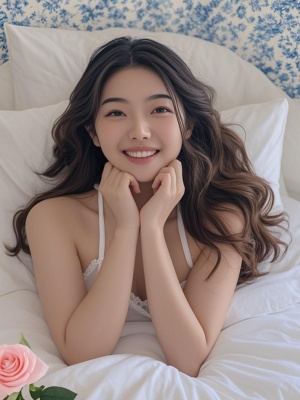The Evolution and Innovation of Modern Portrait Painting
Introduction: Redefining Portraiture in the Digital Age
Modern portrait painting has undergone a radical transformation in recent years, blending traditional techniques with cutting-edge technologies. As artists explore new mediums and styles, portrait painting has evolved beyond mere representation to become a powerful form of personal and cultural expression. From hyper-realistic oil paintings to AI-generated digital portraits, the field offers unprecedented creative possibilities for both artists and subjects alike.
The Changing Landscape of Portrait Painting
From Traditional to Contemporary Approaches
Traditional portrait painting focused primarily on capturing physical likeness and social status. Modern portrait artists, however, prioritize emotional depth, psychological insight, and conceptual narratives. This shift reflects broader changes in artistic priorities and societal values. Many contemporary artists now combine classical techniques with experimental approaches, creating hybrid works that challenge conventional boundaries.
The Impact of Technology on Portraiture
Digital tools have revolutionized modern portrait painting in several key ways:
- Digital painting software enables unlimited experimentation
- AI-assisted tools help artists refine compositions and color schemes
- 3D modeling allows for innovative perspectives and distortions
- Augmented reality creates interactive portrait experiences
Key Trends in Modern Portrait Painting
Hyperrealism vs. Abstract Expression
Contemporary portrait painting exists on a spectrum between extreme realism and complete abstraction. Some artists, like those featured in our gallery, push technical mastery to create works indistinguishable from photographs. Others deliberately distort or simplify features to convey emotional states or conceptual ideas.
The Rise of Digital and AI Portraits
AI-powered portrait generation has become increasingly sophisticated, as discussed in our AI painting guide. These tools don't replace human artists but rather serve as collaborative partners, helping to:
- Generate initial concepts and compositions
- Experiment with different styles quickly
- Process complex visual data for reference
Challenges and Solutions in Modern Portrait Painting
| Challenge | Solution |
|---|---|
| Maintaining artistic authenticity in digital works | Developing unique digital brush techniques and signatures |
| Standing out in a saturated market | Specializing in niche styles or subject matters |
| Balancing technical skill with creative expression | Periodically returning to fundamental drawing exercises |

The Future of Portrait Painting
As we look ahead, several exciting developments promise to shape modern portrait painting:
- Integration of virtual and augmented reality elements
- Increased use of biometric data to create dynamic portraits
- Collaborations between human artists and AI systems
- New materials and display technologies for physical works
Conclusion: The Enduring Power of Portraiture
Despite technological advancements, the essence of portrait painting remains unchanged: to capture the human experience in visual form. Modern portrait painting continues to thrive because it adapts to contemporary contexts while preserving its fundamental purpose. Whether created with traditional brushes or digital tools, powerful portraits still move us by revealing truths about ourselves and our world.
For those interested in exploring portrait creation further, our portrait to art guide offers practical tips and insights. Additionally, resources from institutions like the Metropolitan Museum of Art provide valuable historical context for understanding modern developments.